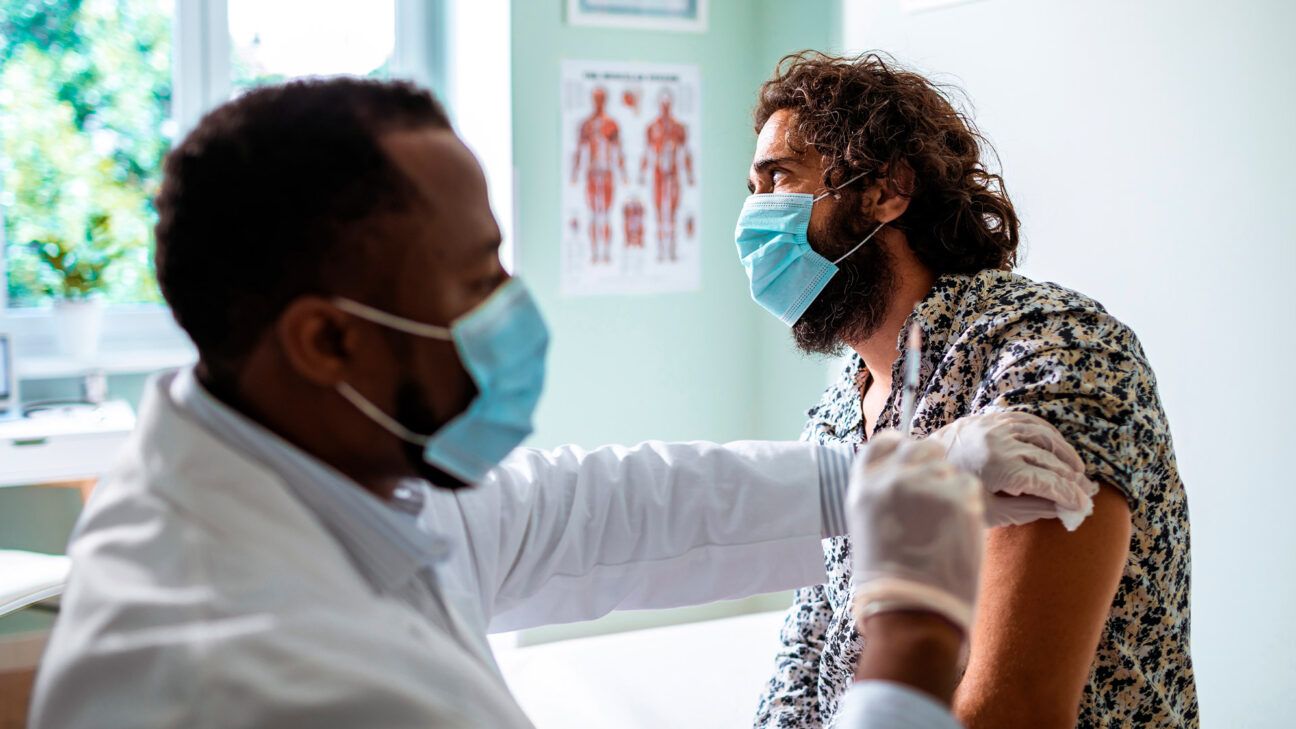By Edward Deacon, SciTech Digital Editor
An online guide has been launched by a team of scientific experts led by Bristol University to fight the spread of misinformation surrounding COVID-19 vaccines and educate readers with the facts.
Entitled ‘The COVID-19 Vaccine Communication Handbook’, the guide provides practical tips alongside the latest information and evidence relating to the Covid vaccines to allow people to communicate reliably about them, challenge myths and allay fears.
The researchers – experts in vaccine psychology, education and virology – are appealing to everyone, be it politicians, teachers, journalists, parents or older generations, to understand the facts, follow the guidance, and spread the word.
As lead author Professor Lewandowsky puts it, ‘vaccines are our ticket to freedom’, so it is crucial that their benefits are communicated clearly to the public to improve uptake.
Prof Lewandowsky (Chair of Cognitive Psychology at the University) added that with the handbook, ‘everyone has the basics, as well as more comprehensive information, at their fingertips and can do their part in sharing facts, not fiction, to put us on the road to recovery rather than a path of further suffering.’
The COVID-19 Vaccine Communication Handbook: A practical guide for improving vaccine communication & fighting misinformation https://t.co/3s5JWBvi0m
— Stephan Lewandowsky (@STWorg) January 6, 2021
Our new handbook (PDF+living wiki), which helps fighting the spread of misinformation about COVID-19 vaccines. #c19vaxwiki 1/n pic.twitter.com/pRpkcJgVfC
Social media has enabled the proliferation of conspiracy theories and spurious claims about vaccines that undermine the common wisdom that they are a force for good. Consequentially, this could discourage people from getting vaccinated, but this is an area the Handbook addresses by pointing out that vaccines are overwhelmingly safe and effective (a point that Prof Lewandowsky made back in December when speaking at the ‘Life sciences in a post-truth world – A COVID-19 case study’ event).
Due to the volume of falsehoods that have been spread online, ‘misinformation has contributed to a false sense of balance, where pro- and anti-vaccination positions are being presented as two equal sides in an ongoing scientific debate’, points out co-author Doug Lombardi, an educational psychologist and Associate Professor at the University of Maryland.
Misinformation has contributed to a false sense of balance, where pro- and anti-vaccination positions are presented as two equal sides in an ongoing scientific debate
‘In reality, the scientific consensus has endorsed the effectiveness of mask wearing, social distancing, and widespread administration of COVID-19 vaccines.’
Co-author Professor Adam Finn, a virologist who has played a key role in the COVID-19 vaccine developments, points out that: ‘Accurate information about vaccines is becoming harder to distinguish from convincing but misleading fiction.
‘This reduces uptake and so their impact on public health and harms us all. Although vaccines enjoy majority support that politicians can only dream of, we can no longer take this for granted.’
However, despite concerns that misinformation has become more prolific and elaborate, the new Handbook offers a chance ‘to take the initiative in ensuring people are not duped into making wrong decisions that harm them, their children and their communities.’
The COVID-19 vaccines are a stunning accomplishment of science but our passage to freedom depends on most people getting vaccinated.
On the question of how to tackle misinformation, Prof Lewandowsky suggests a strategy that ‘challenges and debunks misinformation in a positive, constructive manner’.
‘I encourage people to approach this by providing a truth sandwich – start with the key facts, including that the vaccines have been shown to be 95 per cent effective and have been comprehensively tested without cutting any corners. Then address the misinformation.
‘For instance, if people say the vaccine can’t have been tested properly because it was developed so quickly, explain why this isn’t the case. Given the severity of the pandemic, more resources and expertise than ever were dedicated to this effort. Due to its high profile, volunteers for the trials were recruited much faster than usual. The Ebola vaccine effectively took 10 months from initial testing to trials in the field, so this has been done before. Then finally reiterate the facts so they stay fresh mind.’
The majority of Bristol students are complying with COVID-19 guidelines, researchers find
Researchers develop an evolutionary theory for the universal stress response
The evidence-based Handbook will be dynamic in its long-term usefulness as the topics referenced within it have been linked to a wiki that provides further information. The document will be able to evolve as the vaccine rollout gains pace and new information becomes available.
Professor Lewandowsky said: ‘The COVID-19 vaccines are a stunning accomplishment of science. But our passage to freedom depends on most people getting vaccinated.
‘This handbook and the associated wiki give frontline medical staff, journalists, policy makers, and the public at large the tools to understand why vaccines are safe and how misinformation about them can be rebutted.’
Featured Image: Getty Images / Geber86
Interested in reading the Handbook?
Read it here








